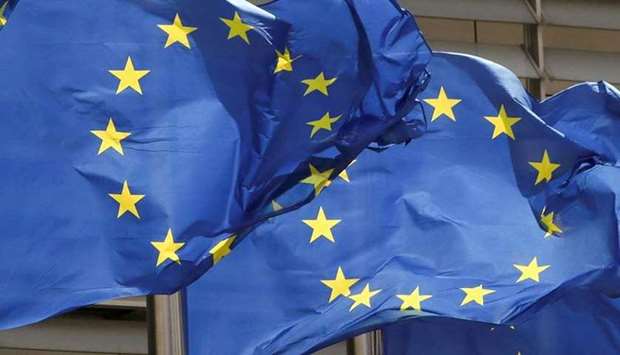European Union foreign ministers expressed support and solidarity with France on Monday during a meeting in New York to discuss Australia's scrapping of a $40 billion submarine order with Paris in favor of a U.S. and British deal.
Speaking after the closed-door meeting on the sidelines annual U.N. gathering of world leaders, EU foreign policy chief Josep Borrell said "more cooperation, more coordination, less fragmentation" was needed to achieve a stable and peaceful Indo-Pacific region where China is the major rising power.
Australia said last week it would cancel an order for conventional submarines from France and instead build at least eight nuclear-powered submarines with U.S. and British technology after striking a security partnership with those countries under the name AUKUS.
"Certainly, we were caught by surprise by this announcement," Borrell said.
The decision enraged France and earlier on Monday in New York French Foreign Minister Jean-Yves Le Drian accused U.S. President Joe Biden's administration of continuing his predecessor Donald Trump's trends of "unilateralism, unpredictability, brutality and not respecting your partner."
The United States has sought to assuage the anger in France, a NATO ally. French President Emmanuel Macron and U.S. President Joe Biden are due to speak on the phone in the next few days.
"We are allies, we talk and don't hide elaborate different strategies. That's why there is a crisis in confidence," Le Drian said. "So all that needs clarifications and explanations. It may take time."
White House spokeswoman Jen Psaki said on Monday that she expected Biden to "reaffirm our commitment to working with one of our oldest and closest partners on a range of challenges that the global community is facing" when he speaks with Macron.
It is not clear if the dispute will have implications for the next round of EU-Australia trade talks, scheduled for Oct. 12. Borrell met with Australian Foreign Minister Marise Payne in New York on Monday.
European Council President Charles Michel said that he found it difficult to understand the move by Australia, Britain and the United States.
"Why? Because with the new Joe Biden administration, America is back. This was the historic message sent by this new administration and now we have questions. What does it mean - America is back? Is America back in America or somewhere else? We don't know," he told reporters in New York.
If China was a main focus for Washington then it was "very strange" for the United States to team up with Australia and Britain, he said, calling it a decision that weakened the transatlantic alliance.
Top officials from the United States and European Union are due to meet in Pittsburgh, Pennsylvania, later this month for the inaugural meeting of the newly established U.S.-EU Trade and Technology Council, but Michel said some EU members were pushing for this to be postponed.

